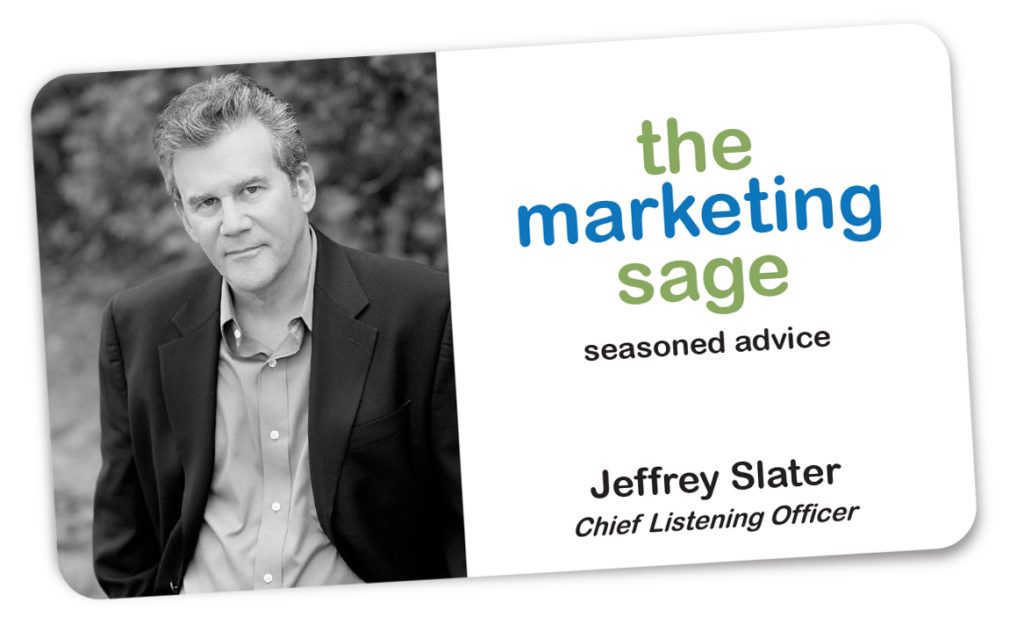10 Communications Lessons from A Marketing Consultant Because Most Business Owners Don’t Speak Marketing.
As a marketing consultant, I often wonder, am I being understood? Do my clients truly comprehend my recommendations?
What’s the best way to convey my ideas, my message – my advice?
I realize that most clients, not all – don’t speak marketing.
I need to be careful that I am not hiding behind marketing speak.
If a mathematician spoke to me in equations, I’d have no idea what they meant. If they spoke to me like an eight-year-old, I might understand what they could teach me.
Lessons in Communications from A Marketing Consultant
The reality is that most clients don’t speak marketing. They don’t think about their challenges without the words, acronyms, or jargon we marketers like to use.
Rarely do I hear clients talking about content creation, outbound marketing, or optimizing websites. I hear of problems like we don’t have enough quality leads or we suck at telling our story succinctly. Few clients think about paid social, earned media, or brand architecture. The best consultants speak in plain language so they are understood.
A recent client kept saying they needed better PR.
It was his word to describe what he thought marketing would do for his business. In this situation, PR was his language to describe what marketing is all about. He didn’t understand how PR was but one of many tactics to help achieve strategic objectives.
I didn’t think it was necessary to correct him.
Instead, I used different words to help him and his team understand how we could tell their story, amplify their message and reach the right people. I communicated with them without using words and jargon that I would freely use with colleagues who speak marketing.
And even marketers who aren’t consultants need to communicate with their colleagues throughout the organization without relying on marketing speak. Don’t assume all C-suite members know the language marketers use – keep it simple, and don’t hide behind fancy phrases.
10 Ways to Improve Communications with Non-Marketers as a Marketing Consultant
As a marketing and branding expert and consultant, bridging the gap between your expertise and understanding non-marketing business owners and leaders is essential.
You can build strong relationships and help your clients achieve their marketing goals by communicating effectively without jargon.
Here are ten tips and tricks I use to ensure I am understood and make a significant impact with my recommendations:
- Simplify Complex Concepts: Avoid using industry-specific terminology and break down complex marketing concepts into simpler terms. Use analogies or real-life examples to explain ideas, making them relatable and easier to understand.
- Listen Actively: Understanding your client’s goals, challenges, and concerns is crucial. Active listening helps you tailor your communication to their specific needs and speak in terms that resonate with them.
- Define Objectives and Metrics: Define the objectives and key performance indicators (KPIs) you will work towards. Explain how these metrics align with the overall business goals, so your clients can see the direct impact of your marketing efforts.
- Use Visuals: Visual aids such as charts, graphs, and infographics can help simplify complex data and make it more digestible. Visual representations can be understood quickly, allowing clients to grasp the key points effortlessly.
- Tell Stories: Stories are a powerful tool for connecting with non-marketers. Use storytelling techniques to illustrate how your marketing strategies have helped other businesses succeed. Stories create a memorable experience and make your advice more relatable.
- Focus on Benefits: Instead of emphasizing technical details, highlight the benefits your marketing strategies will bring to your client’s businesses. Please explain how your solutions will solve their problems, increase revenue, improve brand recognition, or enhance customer satisfaction.
- Relate to Their Industry: Demonstrate your knowledge of their industry and its challenges. You can showcase your expertise and build trust using industry-specific examples and success stories.
- Encourage Questions: Create an open and safe environment for your clients to ask questions. Please encourage them to seek clarification whenever necessary and address their concerns promptly. This fosters trust and promotes a collaborative relationship.
- Actionable Insights: Avoid vague recommendations and provide actionable insights your clients can implement immediately. Break down complex strategies into step-by-step instructions, guiding them through the process and ensuring they can follow your advice.
- Measure and Report Results: Regularly measure and report the progress of your marketing initiatives clearly and concisely. Use visual representations and plain language to highlight the outcomes and explain how they contribute to their business objectives.
By following these suggestions, your communications with non-marketing business owners will ensure they understand your recommendations and the value of your expertise. The best marketing consultants help their clients solve their problems using their language – not yours.
Remember, effective communication means you are understood and your message is clear.
Did I make myself clear?
You can set up a time to chat with me about your marketing challenges using my calendar. Email me jeffslater@themarketingsage.com Call me. 919 720 0995. The conversation is free, and we can explore if working together makes sense. Watch a short video about working with me.
Photo by ThisisEngineering RAEng on Unsplash





